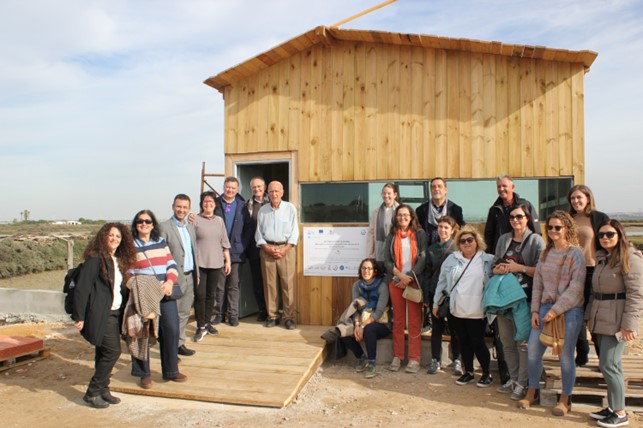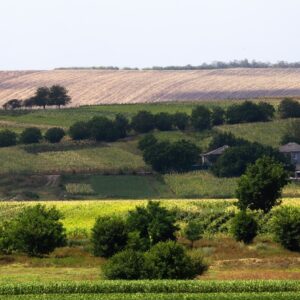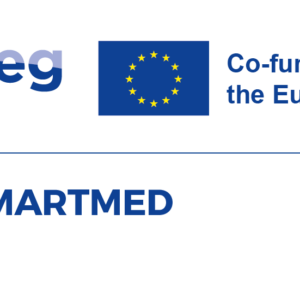During the last Steering Committee of the ENI CBC Med project MedArtSal, the partners tested the new ecotourism itinerary in the salinas in the Bay of Cádiz Natural Park – Spain, realized by the project following the methodology of the MEET Network.
For decades, artisanal management of Mediterranean saltpans has made it possible to combine sustainable economic activity with environmental conservation, whilst promoting a typically Mediterranean cultural landscape. With the rise of industrial salt production, a large part of these saltpans closed down, partly due to their difficulty to compete with the prices of industrial producers. The loss of artisanal salt production in these sites has even put several important Bird Areas in a vulnerable situation.
Thanks to the MedArtSal project, 15 saltpans from Spain, Italy, Lebanon and Tunisia, as project pilot actions, are assessing the most viable combinations of economic activities to generate stable and sufficient income for sustaining their artisanal production. In this sense, the development of responsible ecotourism is proving to be one of the activities with greatest potential.
In this context, the experience of Spanish saltpans in the area of the Bay of Cadiz Natural Park is relevant. Here, thanks to the contribution of MedArtSal partners IUCN and UCA, the MEET networking program was applied in order to improve the competitiveness of artisanal saltpans and thus their sustainability. This approach envisages the development of ecotourism products in Protected Areas through the establishment of a Local Ecotourism Cluster (LEC), a private-public tourism one supported composed of multi-sector stakeholders, that, making a system, aims at proposing ecotourist products, that can be sustainable for all the involved actors as well as the environment.
Visit to Salina La Esperanza and Salinas Preciosa y Roqueta
Currently, the province of Cádiz in Andalusia maintains a total of 9 active saltpans. Our tour begins at salina La Esperanza, one of the two MedArtSal project study cases, focusing on demonstration actions for the diversified development of product and services, among which ecotourism and bird tourism as well as several research activities. We explored the area, that along the years has become an unique natural laboratory, and met Demetrio Berengue, local salt worker, belonging to a family of salt workers that have been guiding the project in the restoring activities in this saltpan.
Then, we moved to salina Preciosa y Roqueta, where Hector Bouzo, manager of CVP -Bahía de Cádiz, realized the restoration of the saltpan, abandoned for 50 years, with the aim of valuing its richness by diversifying its resources. We visited the area where different species of native microalgae are cultivated, such as Dunaliella salina (even included in the saltpan restaurant’s menu), through a system similar to raceways. He and his collaborators showed us the tanks (divided into two connected lanes), in which the water is kept in permanent movement by the action of a system of paddles to avoid algae sedimentation.
Our day ended with a visit to the restaurant Marambay, where we enjoyed the wonderful sunset on the Bay of Cadiz and tasted some specialities – salads and fried food – made of algae, shrimps and fresh fish.
Visit to Salina de San Vicente and Salinas de Chiclana
The following day we continued our tour with a visit at salina San Vicente, in the area of San Fernando. Manuel Ruìz (a salt worker) and his family are in charge of managing this site, where the artisanal production started in 1775. This economic activity gained great significance for the local economy and preserving cultural heritage. During our visit, we experienced how a saltpan works: with the heat of the sun, the seawater running through the saltpans evaporates and crystallizes the salt it contains. Don Manuel explained how both the profession and environment of a salt worker have evolved over the years.
The quality of the artisanal salt extracted from these saltpans has been acknowledged with several gastronomic awards. In order to taste it, we made a first stop at the restaurant of San Vicente. There, we can enjoy the typical gastronomy of Cádiz, including appetizing dishes such as shrimp dumplings and fresh fish, often extracted from the salt marshes and seasoned with the salt produced in this site.
After our gourmet break, we headed towards the salinas de Chiclana. Besides being a facility for the production of salt, this area has become an Environmental Resource Centre which offers both guided tours, food tastings and artisanal fishing activities.
Here we could visit the salt museum, offering a view the geographic distribution of the saltpans throughout the Bahía de Cádiz Natural Park, as well as the main features of the surrounding landscape and valuable biodiversity it hosts.
All this information helps the visitor understand the importance of the artisanal saltpans to maintain the biodiversity in this natural site. During the guided tour we also learnt about the itinerary of the water from the sea all the way into the salt flats: when the tide is high, the salt workers open the gates to allow the water passage. Then, the sea water enters the saltpans and flows through different circuits, small lagoons and dozens of labyrinths, until the salt is extracted.
Finally, we were offered a chance to taste and buy the artisanal salt at the salt shop, where a wide variety of salt-derived products are also on display, both for human consumption and cosmetics. In the summer months, an open-air salt SPA is available for the visitors.
Our day ended with a coffee in the restaurant of the saltpan. We enjoyed the sunset, looking forward to experience once again the special scent, flavour and landscapes of the salinas in Cádiz.
More info about MedArtSal project on our dedicated page and on the official website.
Article realized with the contribution of IUCN and CUEIM.


 IT
IT 


